Yesterday was a cliché. But one of those clichés that make you happy to be living it. It started with a medialuna from La Ventana de Willy (Willy’s window) in bajo Belgrano, famous for the quantity of tangos dedicated to this once down and dirty part of Buenos Aires. Medialunas are basically croissants (don’t dare say that to an Argentine) but thinner and moister, with a slick of sweet glaze on top. They are a classic breakfast food. Breakfast in hand, we passed the Bocci ball court filled with old Italian–faced men, the soccer club where the special of the day was trout and a Quilmes beer and the stores of Chinatown that fringe the railroad tracks.
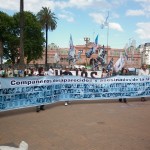 Downtown the mothers and the grandmothers of the disappeared were marching, as they have done every Thursday since 1977 when thousands of students, activists and regular Argentine citizens were “disappeared” by the military dictatorship that reigned from 1976 to 1983. They
Downtown the mothers and the grandmothers of the disappeared were marching, as they have done every Thursday since 1977 when thousands of students, activists and regular Argentine citizens were “disappeared” by the military dictatorship that reigned from 1976 to 1983. They 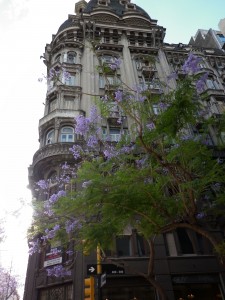 are now joined by the children of the disappeared many of whom where born in detention centers, taken from their mothers and adopted by affluent families. Within the last ten to twelve years there has been a push to reunite these kids with their maternal and paternal grandparents and several high- profile cases of children of famous personalities that suddenly discovered the truth of their paternity. Even though the protest has such a long history that it feels more festive than dreary, it’s still heartbreaking to see the photos of the missing — whose bones will never be buried in the family plot and whose families continue to wonder what became of them.
are now joined by the children of the disappeared many of whom where born in detention centers, taken from their mothers and adopted by affluent families. Within the last ten to twelve years there has been a push to reunite these kids with their maternal and paternal grandparents and several high- profile cases of children of famous personalities that suddenly discovered the truth of their paternity. Even though the protest has such a long history that it feels more festive than dreary, it’s still heartbreaking to see the photos of the missing — whose bones will never be buried in the family plot and whose families continue to wonder what became of them.
Across from the Plaza de Mayo is the cabildo building once Buenos Aires’ town 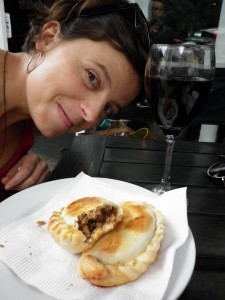 hall, successively “cropped” to make way for the widening of the avenues on either side. We stop at their patio restaurant for some ground beef empanadas with green olives and peppers. The absence of salsa on the table caught my attention and an American walked by and scoffed at our red wine at 2 in the afternoon.
hall, successively “cropped” to make way for the widening of the avenues on either side. We stop at their patio restaurant for some ground beef empanadas with green olives and peppers. The absence of salsa on the table caught my attention and an American walked by and scoffed at our red wine at 2 in the afternoon.
We followed lunch with a wander through San Telmo, Buenos Aires’ oldest neighborhood. The San Telmo market reminded me of the Guanajuato City market in Mexico, with its train-station like appearance and the intricate iron-work on the ceiling. Much more subdued than Mexican markets, this one was sprinkled here and there with the antique stalls that the neighborhood is known for. I bought reprinted tango posters and lingered over Argentine toys from the 40s.
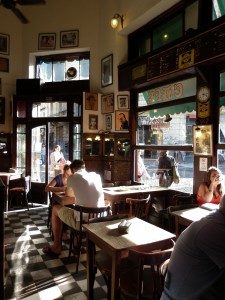 At Plaza Dorrego there were tango dancers passing the hat and a million pigeons begging for the peanuts that you get when you order a beer. Quilmes of course. A chopp (draft) for about a dollar fifty. The bar across the street, whose waiter served us in the plaza, was straight out of The Godfather (the first one) and there were pictures on the wall of Carlos Gardel and Eva Perón. As tourist-cheesy as the plaza seemed, it was full of Argentines, making me second guess my cliché theory — maybe this really is what it’s like to live in Buenos Aires. I have the rest of the month to find out.
At Plaza Dorrego there were tango dancers passing the hat and a million pigeons begging for the peanuts that you get when you order a beer. Quilmes of course. A chopp (draft) for about a dollar fifty. The bar across the street, whose waiter served us in the plaza, was straight out of The Godfather (the first one) and there were pictures on the wall of Carlos Gardel and Eva Perón. As tourist-cheesy as the plaza seemed, it was full of Argentines, making me second guess my cliché theory — maybe this really is what it’s like to live in Buenos Aires. I have the rest of the month to find out.
Click here to subscribe via RSS
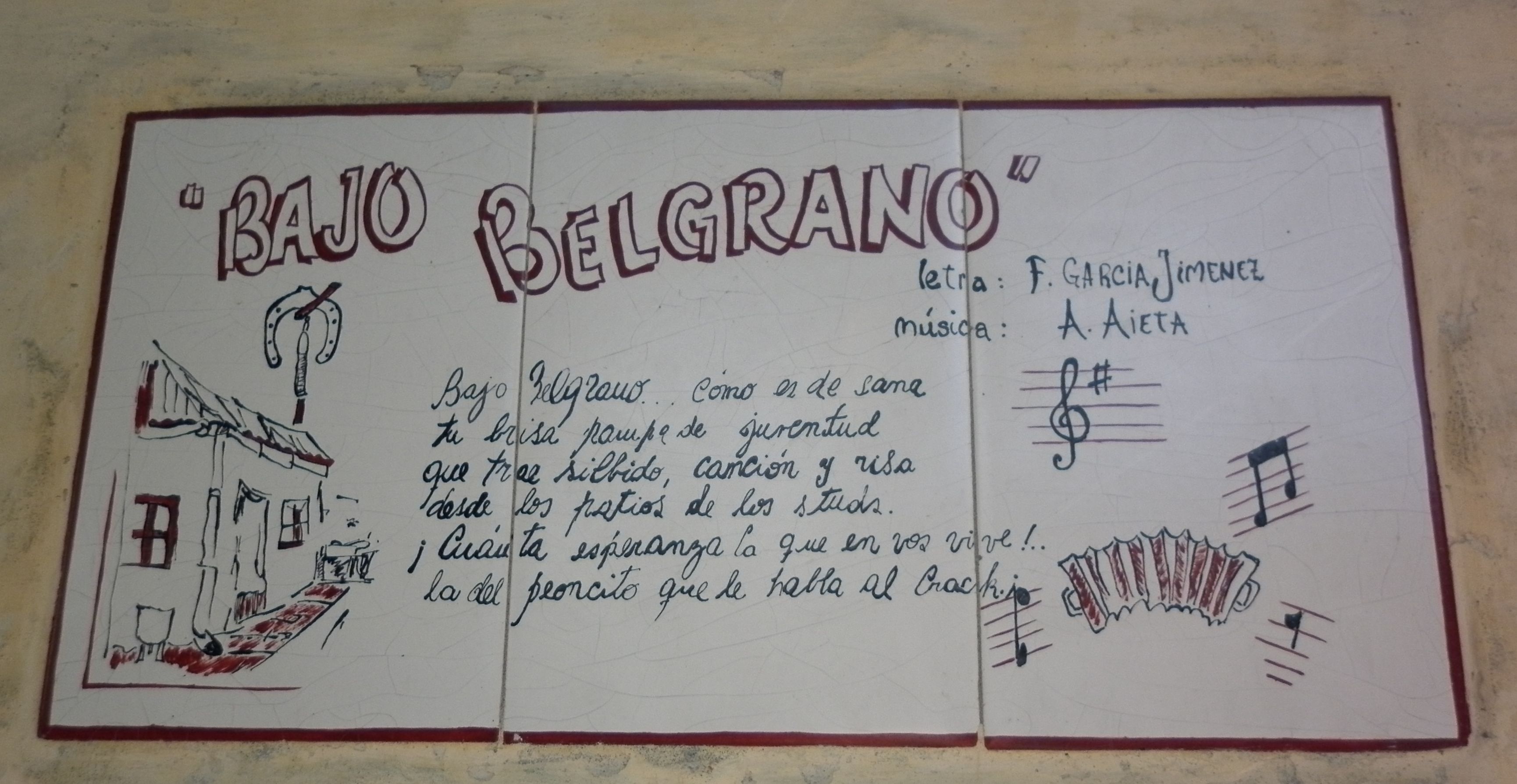
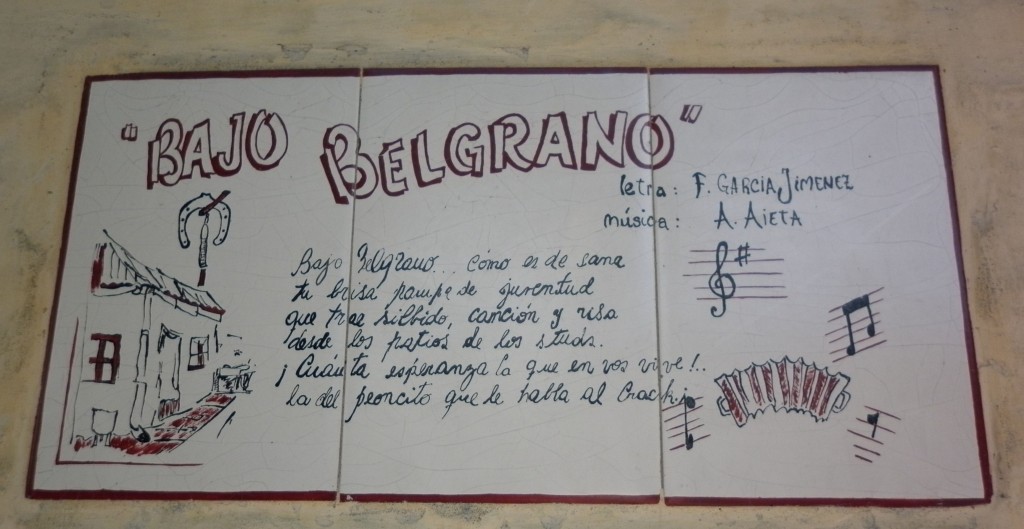
Lydia so well written and descriptive! We would love another story by you about BA and Salta and include a great looking gallery of pix!
Would love to Max. I’m getting it all together now…